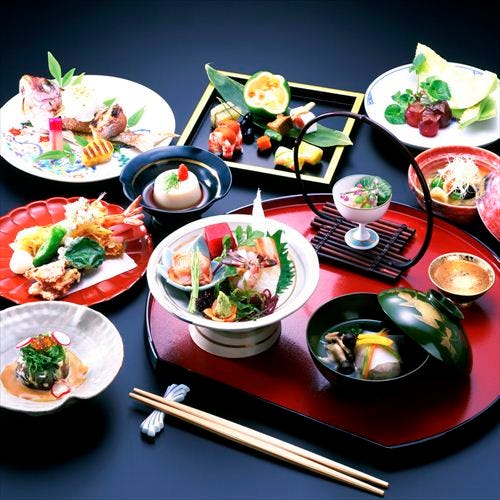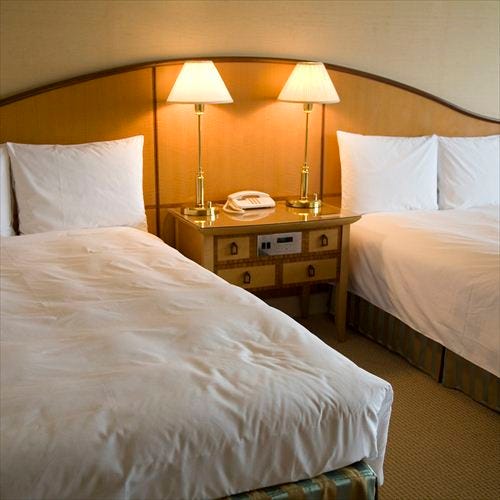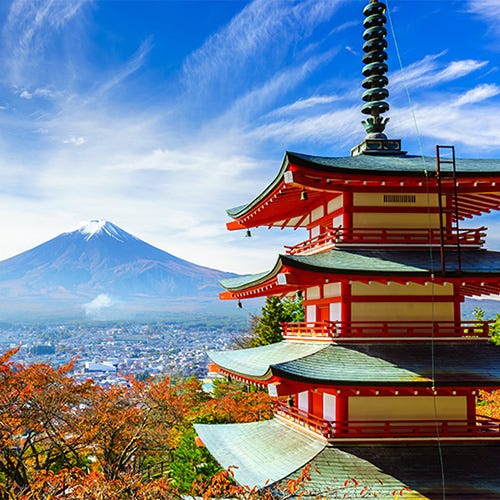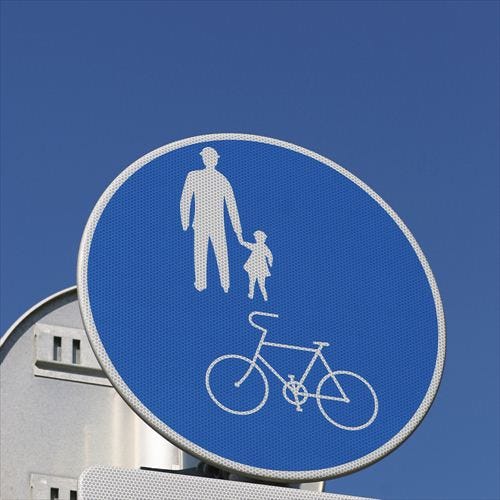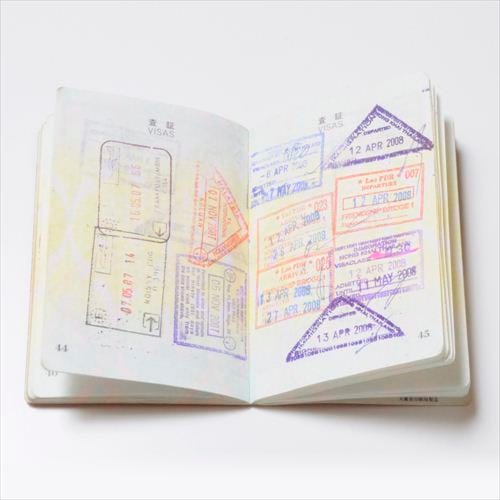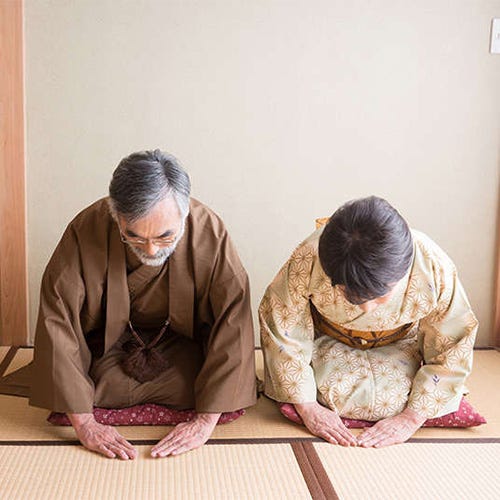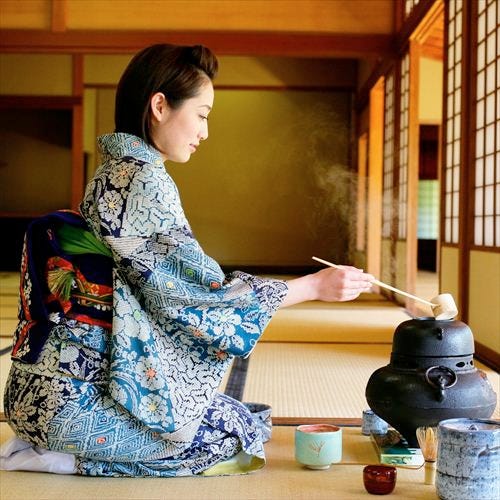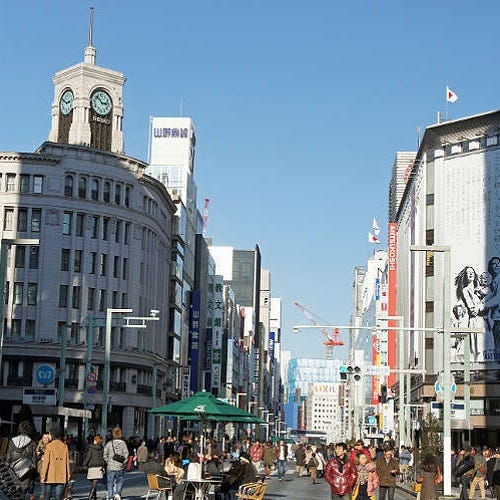
One of the best reasons to travel is to broaden your mind and gather a variety of life experiences to help better understand the world, its people, and culture. The hope is to visit a new place, try new foods, see new places, and observe the way people live that differs from your own country.
And having been exposed to this culture, you then can notice the differences between that culture and your own. This sensation is known as reverse culture shock. Depending on how long you have been away from your own culture, the extent to how different you feel and how much of a shock it is, differs.
Here are some of the strange or weird things people noticed about their own countries after visiting or living in Japan. (Opinions are those as shared by the respondents.)
1. Safe: “I miss the sense of safety”
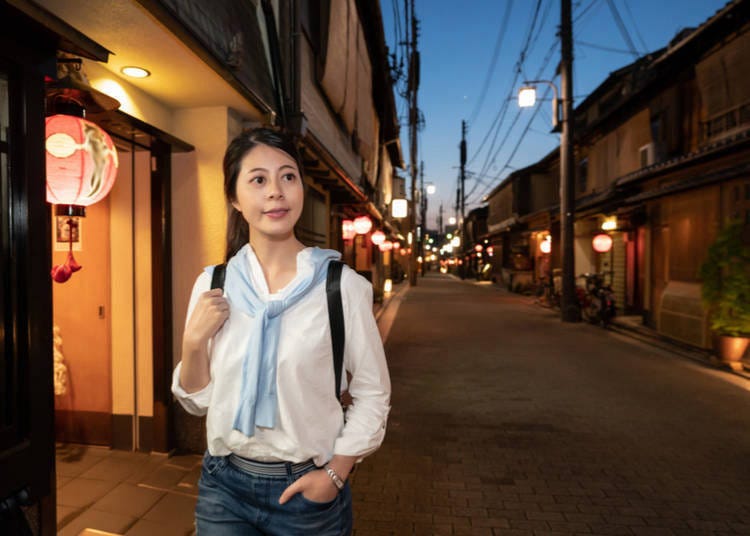
Many visitors to Japan noticed that compared to their country Japan was very safe. Although Tokyo is the most populated city in the world, it is also the safest city, ranking number one on the Safest City Index which ranked major metropolitan areas around the world. Of the top ten cities, along with Tokyo, Osaka ranked number three. So it’s no surprise Japan, in general, is much safer than other places around the world.
Many Americans like Chelsea from Texas were surprised at how safe Japan was. “Texans are pretty well mannered but I miss the sense of safety and that’s really depressing.” Besides obvious things like having a lower crime rate and very strict gun laws, Japan has a safe atmosphere whether in the countryside or city center.
Along with citizens of Japan always looking out for others, Japan has police boxes called Koban where officers are available for assistance. Most places have security guards, parking attendants and plenty of staff to deter crime as well.
2. Clean: “I miss the clean train station and toilets”
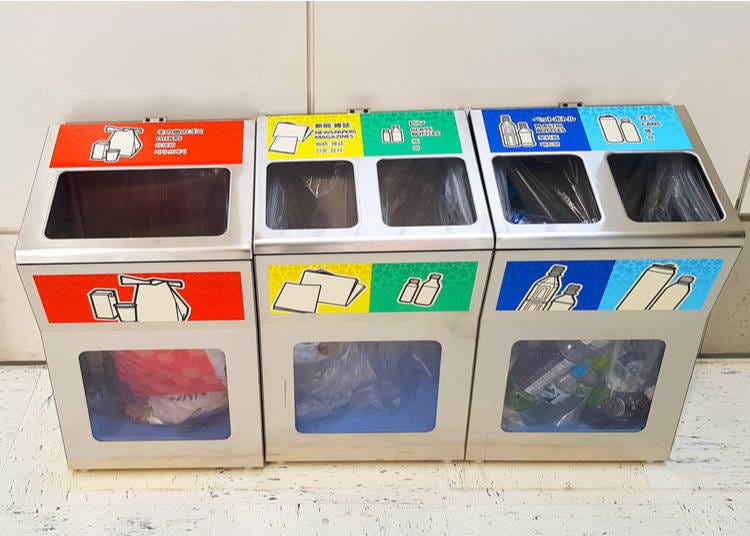
Another popular opinion that kept popping up among foreigners returning to their country was how clean Japan was compared to their own countries. “I miss the clean train station and toilets, no gum or cigarettes on the floor, no graffiti in the building or on the trains. In Europe it’s much worse,” said Alain from Luxembourg.
Belle from the Philippines was also surprised by the people of Japan. “I felt people were much more considerate and cleaned up after themselves. Even though there were no garbage cans around, they just took the trash with them instead of littering.” You will notice that there are garbage bins at train stations and in front of convenience stores but not many other places so many Japanese people are asked to take their garbage home with them.
In Japan, the garbage system is quite complex and garbage separation is more detailed in terms of how it is separated. Burnable, unburnable, cans, bottles, cardboard, and plastic bottles are just a few of the categories that trash is separated into before being picked up.
The cities around Japan hire a lot of cleaning staff to clean the streets and areas in public and private companies have cleaning staff that come in to clean as well. It seems that everyone, including regular staff, students, seniors, and volunteers are always vigilant about keeping not only their private property but also the surrounding area clean making Japan relatively free from litter, graffiti, or property damage.
3. Good service: “They just seemed happy to be at work”

Many visitors to Japan for tourism regarded Japan as a country with high service excellence and superior service standards compared to back home.
Amanda from Australia compared the public transportation in Japan to her experiences back home praising the efficiency of the train system admitting, “I grew up in Sydney, Australia, where the train service uses a time table more as a rough guide than anything to stick to.”
Along with impeccably timed trains, service in restaurants, hotels, shops, and tourist attractions is always applauded by visitors as Japanese staff take extra care to tend to customer’s needs and businesses have strict guidelines and policies that staff must follow when dealing with customers.
“I miss how much staff was around to help you at all times. When we got back to Toronto we got lost in the airport and I couldn't find a single person to ask for help,” said Drew and Jay in America admitted, “It’s pretty normal when you get food or go to the convenience store the clerks do their job and move on. But in Japan literally all of the workers seemed so jolly, especially women. Just great customer service everywhere I went. They just seemed happy to be at work.”
4. Quiet: “Loud voices have been on my nerves constantly”

Japanese people love to drink and know how to party with some of the best music and nightlife zones in the world. But that being said, the public areas of Japan throughout the day are pretty quiet. You will at times hear school bells, important announcements from governments or politician vans promoting a candidate, but the general public tends to move through the city pretty quietly and smoothly.
There isn’t much honking of horns or music blaring from cars compared to other countries. People in trains, subways, and buses are usually asleep, on their phones, or reading a book. There is not much loud conversation going on in public restaurants, cafes, or parks. Even young people hanging out at street corners or in front of convenience stores keep chatter to a minimum or are quietly playing video games or watching anime on their phones.
Steffi, from Germany, noticed the difference from her town and her time in Japan saying, “Loud voices have been on my nerves constantly.”
Jill, from Spain, who had only been visiting Japan for a short trip also noticed the difference in noise. “The loud people talking on the phone in public places definitely irritated me when I got back.”
Japanese tend to be more reserved and careful of their surroundings hoping not to bother others around them which might be why they seem to prefer quietness and calm.
5. Less spacious: “ I had to turn sideways to get through some of the aisles”
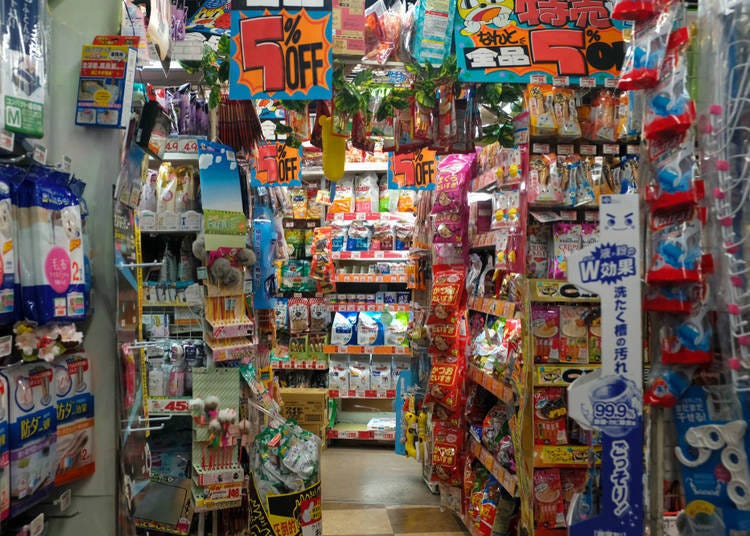
Of course, Japan is not a utopia and there will always be things you find better in your own country. In terms of space, Japan is a small island with a majority of people packed into big cities like Tokyo, Osaka, and Yokohama.
For this reason, utilizing and optimizing efficient ways to use that space has made Japan a very space-conscious country. Whether it is the architecture of people’s homes, the layout of the city or the interiors of restaurants, bars or shops, Japan tries to get as much use as they can out of spaces. This makes many areas of Japan narrow, cramped, or filled to the brim with products.
“What was a bit of shock to me was how cramped some of the shops in Akihabara and Takeshita Street [in Harajuku] were. I had to turn sideways to get through some of the aisles. What was also a bit surprising was the uneven footing in some places. There'd be places where you had to walk up to the shop entrance or down to it, and if you weren't careful one could easily trip. Some of the staircases were also pretty narrow as well,” Alan, from Alabama said of his vacation time in Tokyo.
6. Manners: “I’m not sure it would have been such a culture shock if I hadn’t traveled in Japan first”
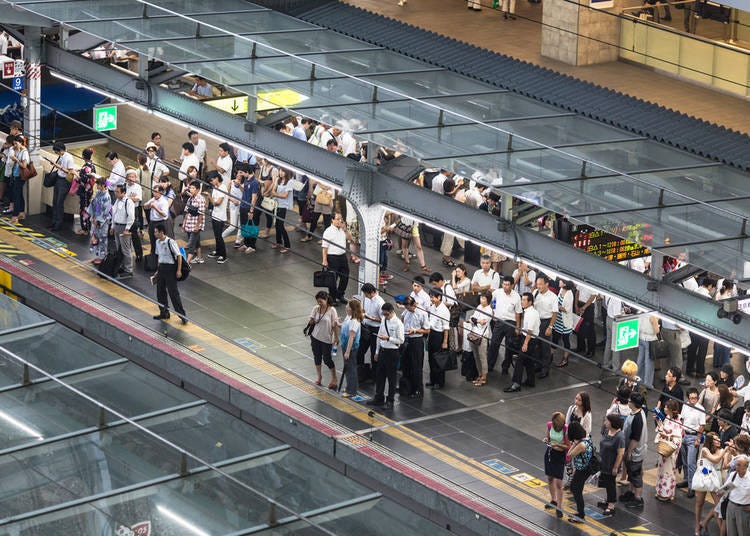
Manners seemed to be a major shock to those who visited and interacted with people in Japan and then returned to their home country. In the time they spent in Japan at the airport, out and about the city and in public spaces, many foreigners were amazed at how different the people of Japan behave in public compared to their own hometowns.
Susan from Australia had trouble returning back to her country after witnessing the politeness of the people in Japan. “The culture shock here has been brutal. I’ve found people to be unfriendly, often rude, self-centred, and loud. It’s been hard to enjoy myself. I’m not sure it would have been such a culture shock if I hadn’t traveled in Japan first.”
Along with Japan being quiet compared to some other countries, people in Japan tend to follow rules, are considerate of those around them, and respect public spaces and policies. Zoe from the Gold Coast recalled how in Japan people follow rules and have specific ways of dealing with others compared to her town. “I found when money wasn’t handed over politely and people using escalators didn’t stand to the side, these annoyed me!”
The rules and manners on trains are different as well in terms of boarding and exiting a train. “No one waited for people to get off before boarding and then proceeded to push and shove when getting in. I was like LINE UP PEOPLE before my partner had to remind me we aren’t in Japan anymore,” said Payton recalling their trip to Japan.
7. Kawaii Culture: “The cute music and cartoons were everywhere!”
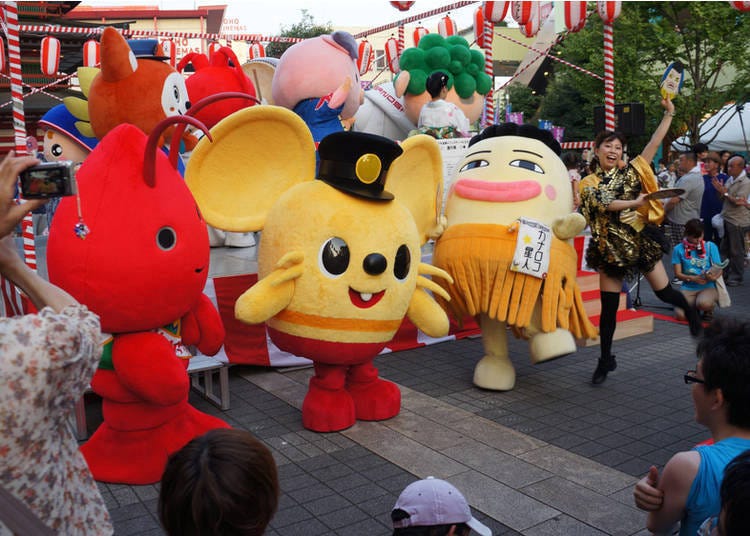
Kawaii, which means cute in Japanese, is a major part of the culture and not just for little kids. It seems that everything from clothing, food, products, designs, signs, posters, and advertising has a touch of kawaii which is quite different from other countries. The lack of kawaii in other countries becomes more visible when returning home. Samantha, a student from Colorado said: “The cute music and cartoons were everywhere!” And she is not wrong. There are kawaii jingles playing in shops, supermarkets, pharmacies, and even in some offices.
Not just for children or girls, kawaii goods and culture are prominent throughout all ages and backgrounds and even used by services like the police department and hospitals. Most products often have a mascot, logo, or character associated with it that is colorful and cute.
Even cities across Japan have their own anime-style town mascots called yuru-kyara which symbolize the town and often are used in all advertising and promotional material.
8. Convenience stores: “Where I live there is one 7-Eleven and it’s not very big”
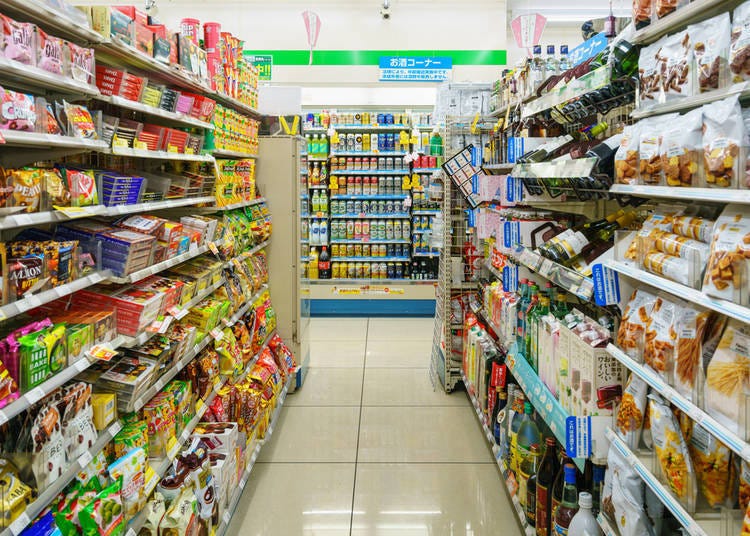
Convenience stores like 7-Eleven, FamilyMart and Lawson might be available in many countries but many people realized how much more convenient they are and how easily accessible they are compared to convenience stores in their home countries.
Anil, from Ontario, was amazed at the amount of shops around. “Where I live there is one 7-Eleven and it’s not very big. The choice is limited, they don’t have anything except soft drinks, snacks, and some fast food options. But the convenience stores in Japan were packed with grocery store type items, beauty goods, alcohol, pet food, and even clothing. And there were like three convenience stores minutes away from each other. I think I visited them every day for the entire six months I stayed in Japan.”
Convenience stores are truly convenient in Japan as they have a variety of goods and services and Japan has over 58,000 of them throughout the country. They usually have photocopy machines, ATMs, ticket outlets for entertainment, a shipping service, and accept bill payments. Almost any type of service of product you are looking for most likely can be purchased or sent to a convenience store for easy pick-up.
9. Food taste and presentation: “ Even the plates, bowls, and cutlery were interesting to look at”
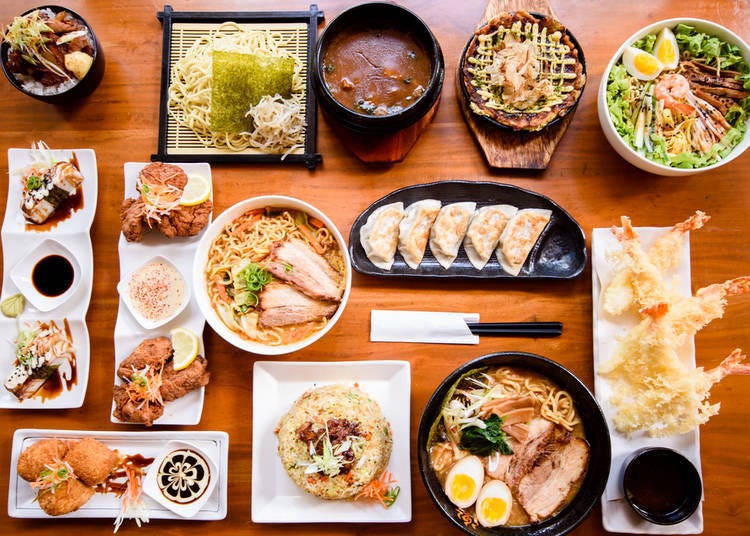
Each country has its own food culture, preferences, and specialties that are unique. Japan has been globally known to be a country with exceptional food preparation skills and presentation. Along with famous Japanese foods like sushi and tempura, Japan has a wide array of culinary specialties like takoyaki, sukiyaki, nabe, okonomiyaki, soba noodles, yakitori and rice balls that are not only delicious but visually pleasing.
Many foreign visitors felt that one thing their country lacks is the presentation and delectable foods Japan has to offer. Lu, from Florida and a lover of Japanese food said: “I got addicted to mochi, yakitori, and shochu.”
Magda, from Canada and a foodie, compared her country and Japan’s food presentation style. “In my area, all the restaurants are about huge portions and piling it on. But every restaurant I visited in Japan put so much attention into setting up the dishes, arranging the food on the plate to look pretty, and adding so many different colors and textures together to make it look artistic. Even the plates, bowls, and cutlery were interesting to look at.”
10. Toilets: “The toilet scene at home was hard to adapt back to”
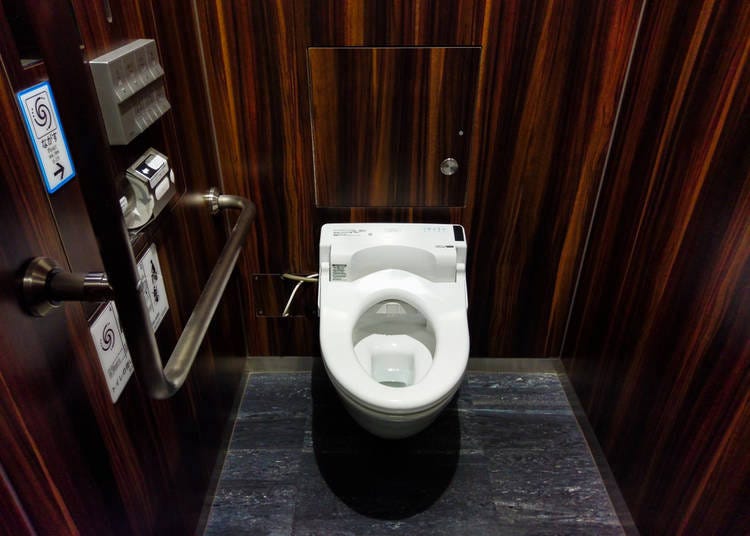
A surprising feature of Japan that constantly popped up from both visitors and those living or working in Japan was the differences in the toilets, bathroom, and bathroom etiquette. Many foreigners seemed to compliment the cleanliness and efficiency of bathrooms.
“The toilet scene at home was hard to adapt back to, especially our public toilets,” said Linda from New Zealand and John from Scotland also mirrored those views feeling that “No one in Scotland would dare enter a public bathroom unless they absolutely had no choice. It’s quite scary in there. After I saw the places in Tokyo and how clean and sparkling they are I was quite disappointed with my town.”
Along with the cleanliness, the automation of the sinks, doors, toilet seats, and the toilet itself is a popular feature of Japanese bathrooms. Many people missed the automatic seat rising, seat warmers, bidet, and other functions that modern Japanese toilets provide.
11. Bowing: “I found that I began to simply bow all the time”
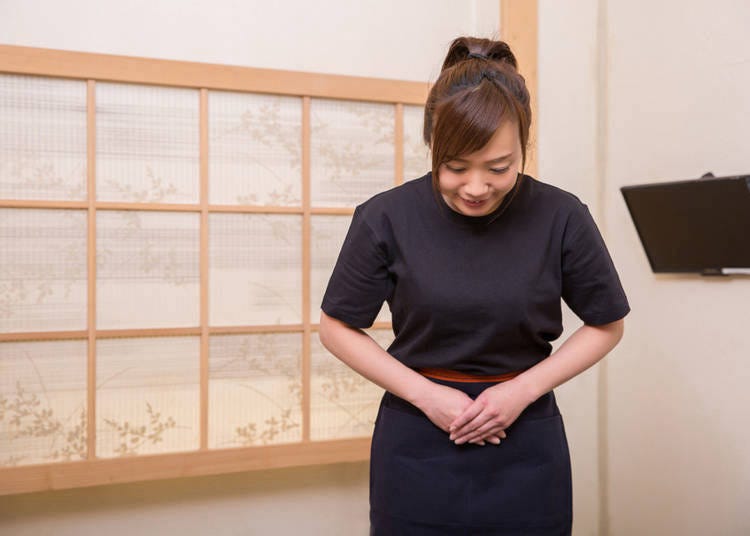
Bowing is an important part of everyday Japanese culture. Whether it is done as a greeting to friends, neighbors or fellow citizens or as formal etiquette in business, bowing is a traditional Japanese custom that continues to this day.
Japanese people are accustomed to bowing in so many situations, often they do it naturally without thinking. Whether greeting guests at hotels, shops, or attractions, during meetings with coworkers and clients or just saying goodbye to their friends after a night of drinking, bowing is second nature in Japan.
So returning to a culture that is not used to such a custom is sometimes a shock, especially for those foreigners who have stayed long periods in Japan and have gotten used to bowing. “After several visits to Japan, I found that I began to simply bow all the time, at virtually any encounter in my home country,” said Chris from the Cook Islands.
Many others also felt that they would bow or nod their head during greetings when they returned to their home country, often getting strange looks and reactions. “I bowed to my grandmother. Repeatedly,” said Steffi from Germany. And Manuel, from California, also continued to bow when returning home. “I caught myself bowing to people when I'd give them the right of way on the street.”
12. Speaking Japanese: “I couldn’t help it though, it just became a part of my bodily memory”

Similar to picking up gestures like bowing in Japan, many foreigners had picked up handy Japanese phrases and were so used to using them they would often use them even after returning back to their hometowns. “Going back through the airports in America, I had to make a conscious effort to switch back to ‘excuse me’ from ‘sumimasen’ after two months of commuting by train almost every day,” said Elizabeth who was in Japan for an extended period of time.
For Stephanie from Canada, when visiting her hometown she had trouble shaking the Japanese she had used in her daily life. “When I went back to Canada for a visit I was bowing all the time and saying sumimasen to people on a daily occasion. I was getting such weird looks, especially when I bowed to others as a thank you when leaving the elevator and such. I couldn’t help it though, it just became a part of my bodily memory.”
Lisa, from Australia’s situation was similar. “My 3-year-old took a few weeks to get back to saying thank you in English. He kept saying arigato gozaimasu.”
13. Talking on the phone in public: “I realized how many people are talking on their phone”

Japan is a leading country in phone technology and even children carry smartphones. However, even with all the phones and people using them, it is quite shocking to see anyone actually using them in public to talk.
Japanese people tend to avoid talking to people on the phone in public as a courtesy but in other countries, there might not be such a culture. So foreigners returning from Japan often are shocked to notice the number of people out and about talking on their phone without any regard to the noise pollution it might create.
Most people in Japan use smartphones on the trains or in a restaurant or cafe but stick to using the device for messaging, music, video, or playing games. Many people use their phones in public to read online blogs, anime, or flip through social media sites like Facebook, Twitter, or Instagram.
It is taboo to talk on the phone on public transportation so even if someone receives a call they will quickly cover their mouth and tell the person to call back to avoid others from being disturbed.
“I ride the bus every day to work now and I realized how many people are talking on their phone. Some are really loud on video calls. I never noticed it until I came back from Japan where everyone was either sleeping or playing games quietly on their phones,” realized Dwayne, from Montreal after visiting his friend in Japan for three weeks.
14. NO tipping: “I miss not tipping in Japan”

Despite having some of the best service excellence in the world, Japan has a no-tipping culture. Whether you are served at a hotel, restaurant, hair salon, or anywhere else that might expect people to tip after the service, Japanese people don’t expect or require a tip.
Having a great experience, settling the bill and leaving the establishment seems easy and efficient compared to other countries where one might have to worry about calculating tip percentages or feeling obligated to tip despite poor service.
So after returning back to their home country where tipping is a common and necessary aspect of society, some foreigners felt a reverse culture shock having to acclimatize back to tipping.
“I miss not tipping in Japan. The staff are friendly and amazing despite not expecting a tip. Here in Vancouver not only do we have to tip regardless of service but if we tip too little, the staff gets angry,” said Kelly from Canada, who appreciated not having to tip in Japan.
15. Fashion: “It was so strange for me to see people looking so casual in public”
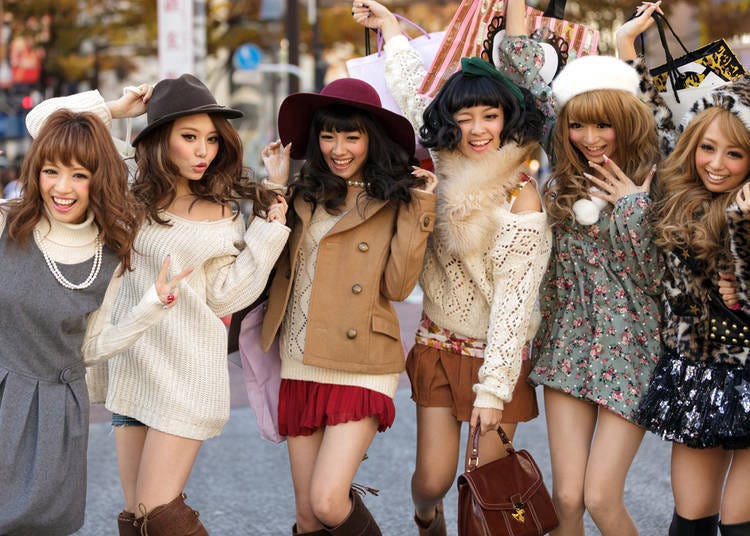
Japanese people pride themselves on their fashion and their attention to details from the brands they wear to the size, fit, and look of their outfits. Whether you are a teenager in Harajuku, a salaryman in Tokyo, or a farmer in rural Japan, fashion and clothing are an important part of everyday life.
Both men and women tend to dress well even if they are just going out to the market for a quick errand. Hair, cosmetics, clothing, and accessories are planned and prepared before leaving home. Despite the choice of fashion, the important thing is Japanese people are very concerned about their image in public and are incredibly brand conscious.
In contrast, people in many countries are much more casual and people tend to only dress up for work or special occasions. So many foreigners, especially females who stayed in Japan for longer periods of time, noticed that upon returning home, the people around them felt more underdressed than before.
Sarah, an English teacher who had lived in Korea and Japan for almost a decade, explained her feelings returning to America.
“While living in Japan, I got used to putting on make-up and decent clothes even when just out grocery shopping and doing errands. But after coming back to the US, I noticed so many people in sweats and crocs out shopping or even at restaurants. It was so strange for me to see people looking so casual in public. That’s when I knew I had been away from my country a long time.”
Whether you visit Japan for a few days or end up staying months or years, one thing is certain; you will see things differently once returning home. Entering a new country you are bound to face culture shock as the people, places, and culture is different from what you are used to. But coming back to your own culture can be just as surprising as you are able to see things more broadly.
While international travel is still likely a ways off thanks to Covid-19, we still enjoy making our lists of new experiences to enjoy, new places to visit, and new adventures to join!
Main image credit MAHATHIR MOHD YASIN / Shutterstock.com
Written by:

*Prices and options mentioned are subject to change.
*Unless stated otherwise, all prices include tax.
Limited time offer: 10% discount coupons available now!
Recommended places for you
-
Appealing
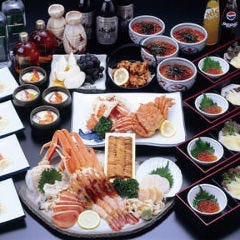
Rukku and Uohei
Izakaya
Sapporo / Chitose
-
Menu
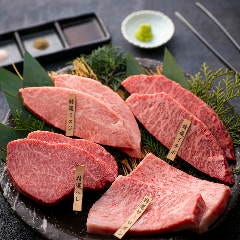
ISHIDAYA Hanare
Yakiniku
Kobe, Sannomiya, Kitano
-

Jukuseiniku-to Namamottsuarera Nikubaru Italian Nikutaria Sannomiya
Izakaya
Kobe, Sannomiya, Kitano
-

Kamesushi Sohonten
Sushi
Umeda, Osaka Station, Kitashinchi
-
Goods

Yoshida Gennojo-Roho Kyoto Buddhist Altars
Gift Shops
Nijo Castle, Kyoto Imperial Palace
-
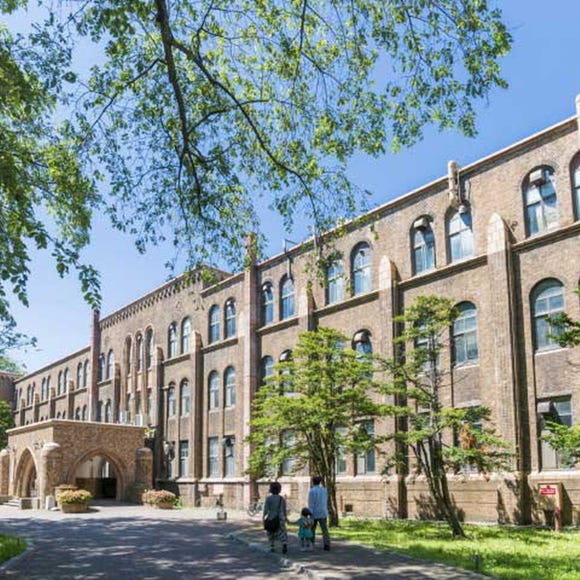
Hokkaido University
Other Architecture
Sapporo / Chitose
-

The CASIO S100: How CASIO's Masterpiece Calculator Redefines Business Elegance With Japan-Made Reliability
-
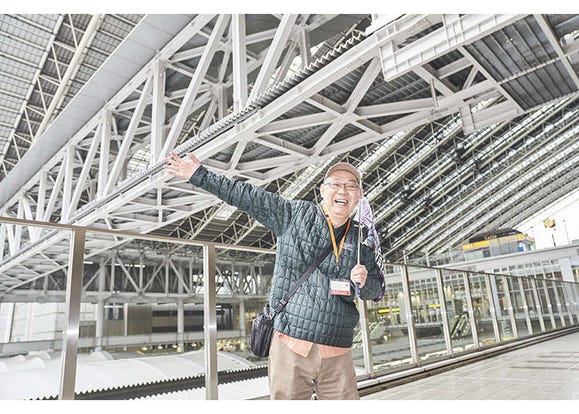
Discover Osaka Station City: A Journey Through Its Most Fascinating Spots
-
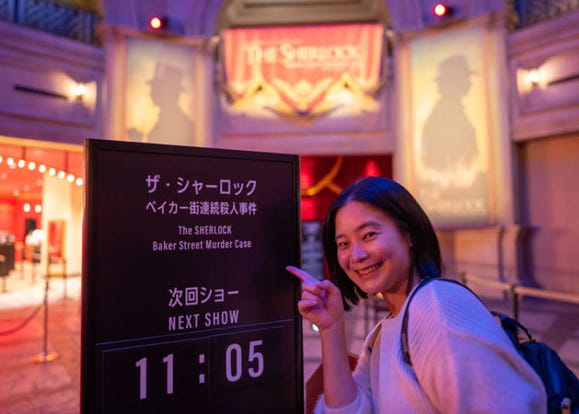
Step Into the Story: Inside Immersive Fort Tokyo
-
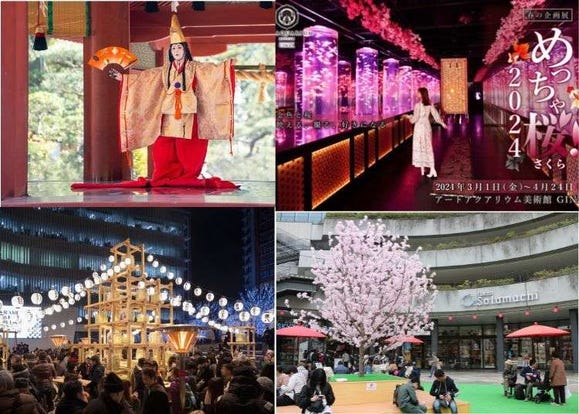
Best Things to Do in Tokyo in April 2024: Events, Festivals & More
-
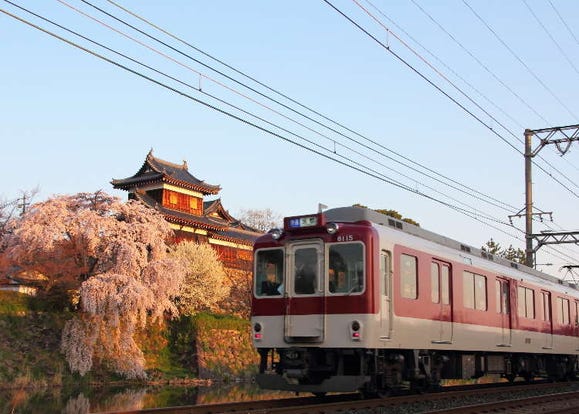
The Complete Guide to the Kintetsu Rail Pass
-
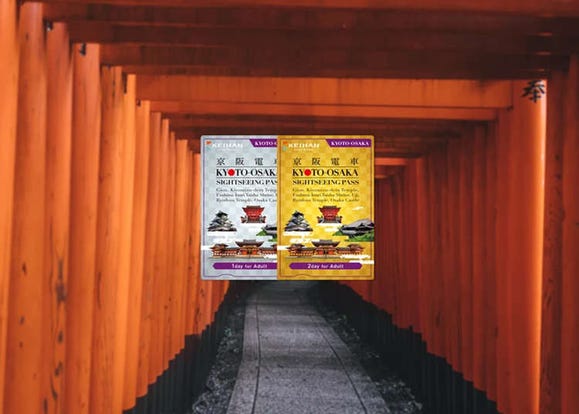
Everything You Need To Know About the Kyoto-Osaka Sightseeing Pass
-
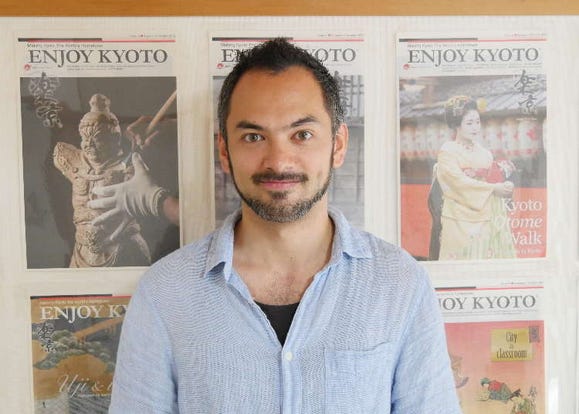
Reflections on Kyoto from a British man. What Makes Kyoto Great from an Outside Perspective.
-
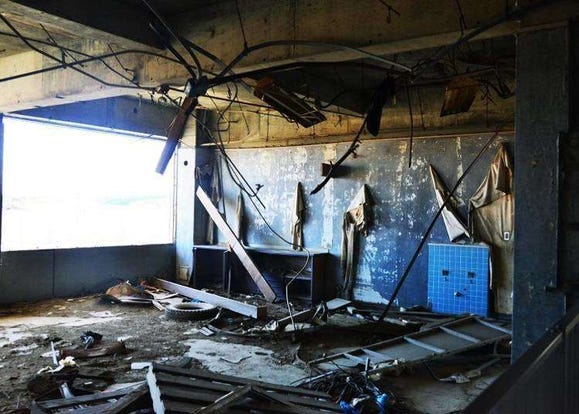
Kesennuma City Memorial Museum (Ruins of Koyo High School): Telling the Story of the 3/11 Great East Japan Earthquake
-

Kyoto Trip: 10 Most Popular Temples Around Arashiyama (October 2019 Ranking)
-

Sendai Umino-Mori Aquarium: Inside Northeast Japan's Largest Aqua Attraction
-
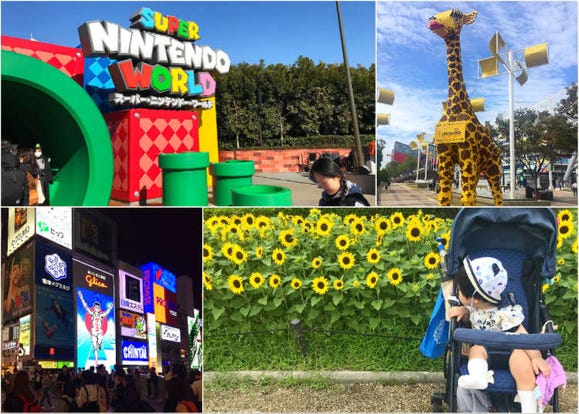
Fun-Filled Adventure! 5-Day Osaka Itinerary With Family-Friendly Attractions for 2024
-
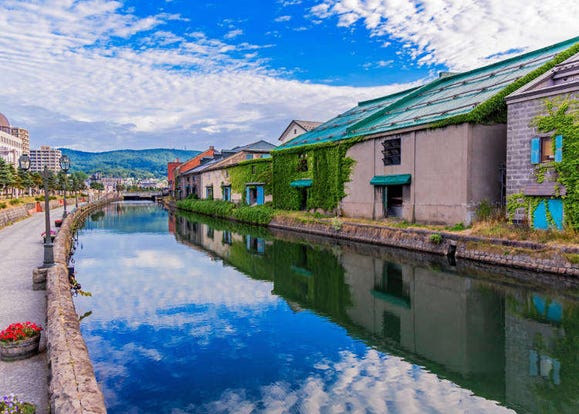
Visiting Hokkaido Japan: 14 Things to Know Before Traveling to Japan's Wild North
- #best sushi japan
- #what to do in odaiba
- #what to bring to japan
- #new years in tokyo
- #best ramen japan
- #what to buy in ameyoko
- #japanese nail trends
- #things to do japan
- #onsen tattoo friendly tokyo
- #daiso
- #best coffee japan
- #best japanese soft drinks
- #best yakiniku japan
- #japanese fashion culture
- #japanese convenience store snacks
